Growing up, my mom always convinced me to finish my dinner plate because, as she put it, “people out there are starving!” I always thought this was pretty stupid logic, because it wasn’t like anyone was going to eat the food I didn’t want. Little did I know that a few short years later, many Millennials would be doing just that, trying their hand at a rather unconventional culinary practice: dumpster diving.
Dumpster diving refers to the process of retrieving food and other goods from commercial waste bins in order to consume them or repurpose them. At first glance, it seems pretty repulsive, if not dangerous; indeed, until the last few years, it was done pretty much exclusively by the homeless out of necessity.
1. It Helps Combat Food Waste

Photo by Sean Koetting
The US and Canada waste a crazy 6,000 dollars worth of food per second, and globally, 50% of the total food produced ends up going to waste. Food waste is a huge issue, especially considering the effect of climate change on the world’s food producers. And while you may think that you and your roommates only throw away stuff that is completely inedible, you are most likely wrong.
2. You’ll Save a Sh*t Ton of Money on Food
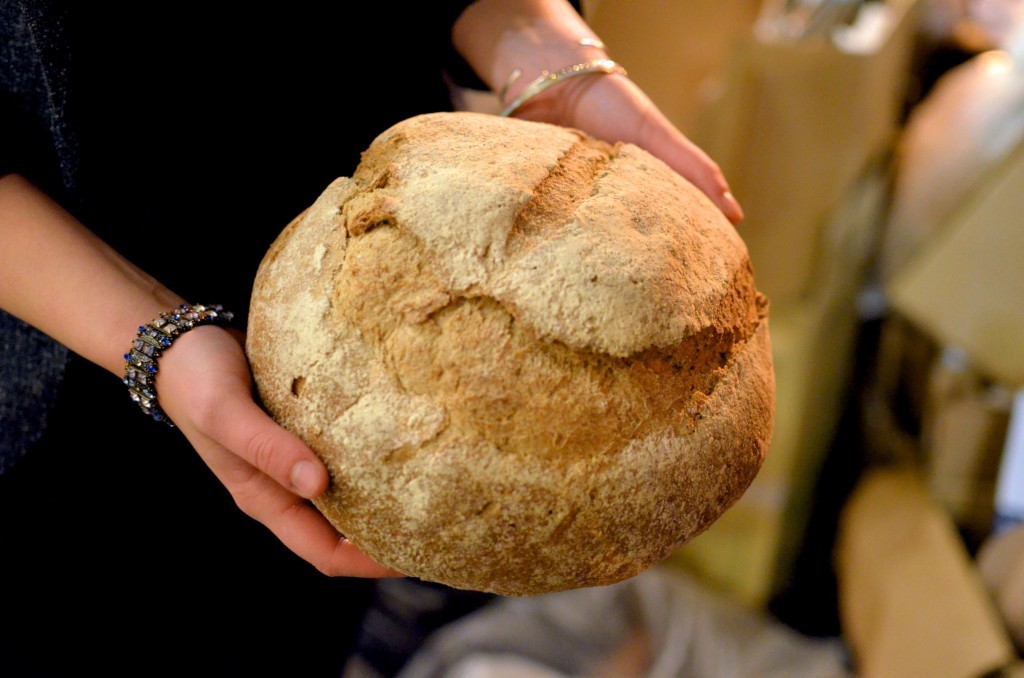
Photo by Margaret Weinberg
Today’s young people face unemployment and high cost of living that makes something seemingly gross actually an attractive option. One couple dumpster dove for 6 months and managed to scrounge up 20,000 dollars worth of edible food, while only spending 200$ on groceries. Seriously, just thinking about how much money I could save doing this (or, in all honestly, how much money I could spend on clothes) is making me want to try this.
3. It’s a Unique Way to Explore Your City

Photo by Ally Mark
Most cities have dumpster diving maps available online, or host local workshops that teach people how do dive successfully. You’ll likely be getting into some cool spots you otherwise wouldn’t get around to going to, like local farmer’s markets, small grocery stores, and more. Plus, you’ll get involved with a network of people who are equally passionate about the same issues as you.
4. It’ll Help You Step out of Your Foodie Comfort Zone

Photo by Tess van Donkelaar
Fellow Spoon Writer Tess has tried her hand at the trend, influenced by her brother, who is a diving pro. Tess says that the experience has helped broaden her food experiences, and has helped her become inventive with unconventional food sources. One of her biggest successes was a rhubarb-apple-kefir cake with amaranth and spelt flour (pictured below). Um, yes.
5. You Don’t Actually Have to Get Dirty if You Don’t Want To
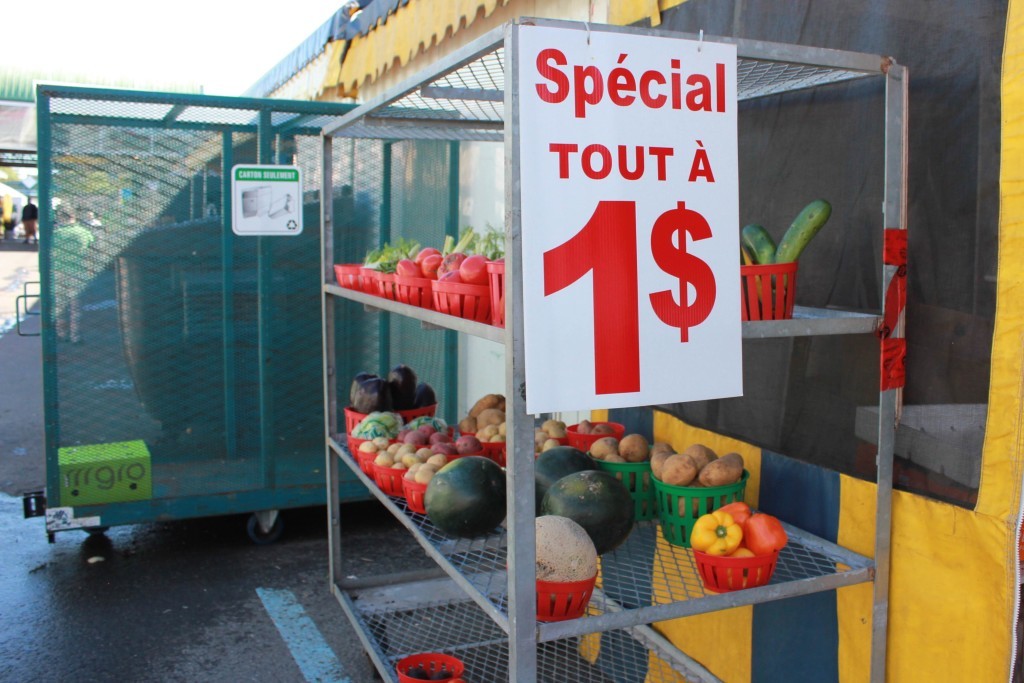
Photo by Carolyn Chin
Let’s face it, the concept sounds great on principle, but the idea of actually digging through dumpsters is pretty unappealing. Luckily, there are plenty of ways around this if scrounging through people’s trash isn’t your thing; Spoon McGill writer Laura says that she is usually able to find veggies at farmers markets without entering any real dumpsters. You can usually look for a free or reduced-price food area to avoid getting your hands dirty.
6. It will Help Reduce your Ecological Footprint
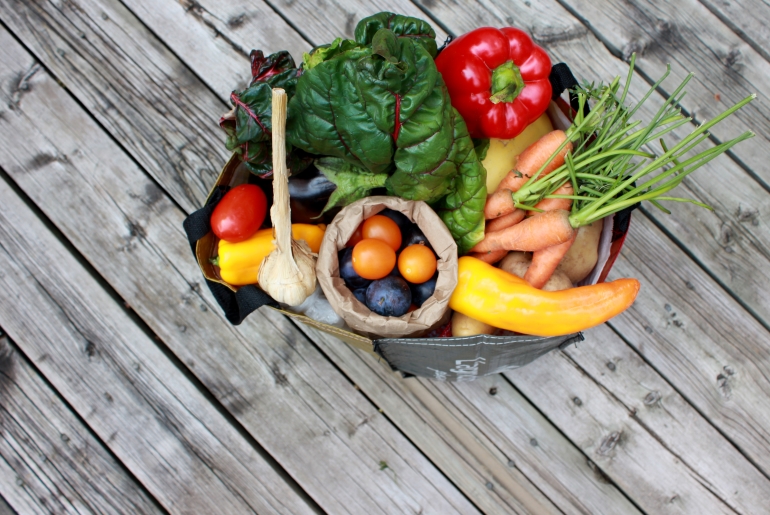
Photo by Carolyn Chin
Similar to veganism, driving a Prius, or literally never taking a shower, dumpster diving is a great way to reduce your ecological footprint. I hate to get all metaphysical here, but when you die, are you gonna feel proud of your life if you never made any strides to help the earth? This is a great place to start, and its decidedly less smelly than never showering (though still kinda smelly, tbh).
7. You Can Find Some Great Non-Food Stuff, Too

Photo courtesy of flickr.com
Dumpster diving isn’t just for expert food scavengers: you can usually find a plethora of non-food items like antiques, craft supplies, and more. One diver (dumper?) has found signed books, vintage records, lamps, and even an oriental carpet. Plus, she even turned a profit by selling them on Ebay. One self-proscribed “high end diver” says he will make 250,000 dollars a year reselling stuff from an Office Depot dumpster.
8. It Helps Your City’s Needy
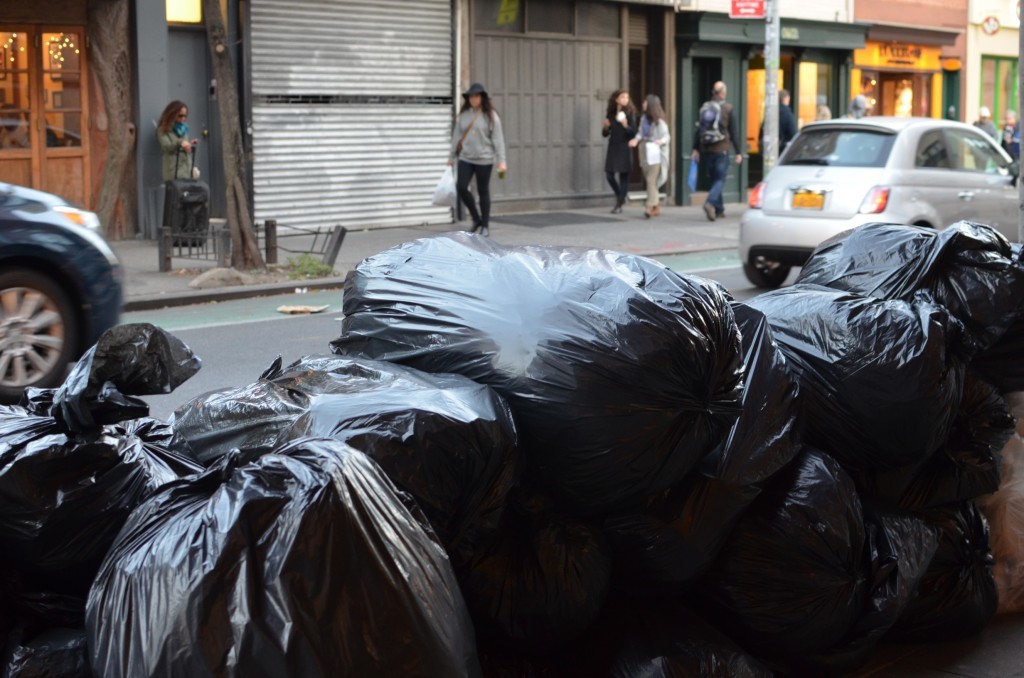
Photo by Margaret Weinberg
The growing popularity of dumpster diving creates an atmosphere where your city’s homeless or impoverished residents can learn how to properly scavenge for food healthily and happily. McGill University, for example, hosts a lot of dumpster diving workshops that can help the homeless learn the proper methods. Others have taken to finding flowers leftover from large events and giving them to the elderly in live-in care.
9. It Encourages Grocery Stores to Practice Sustainably

Photo by Natsuko Mazany
Knowingly losing money on food people dig out of their dumpster will hopefully cause grocery stores to hold themselves more accountable to a high standard of sustainability. Right now, there are strict rules that cause grocery stores to throw away stuff that is by all counts still edible. Many grocery stores have already started a ‘reduced’ section full of food that isn’t totally fresh, but still delicious and usable.
10. It Teaches You Which Expiration Dates You Should Actually Follow
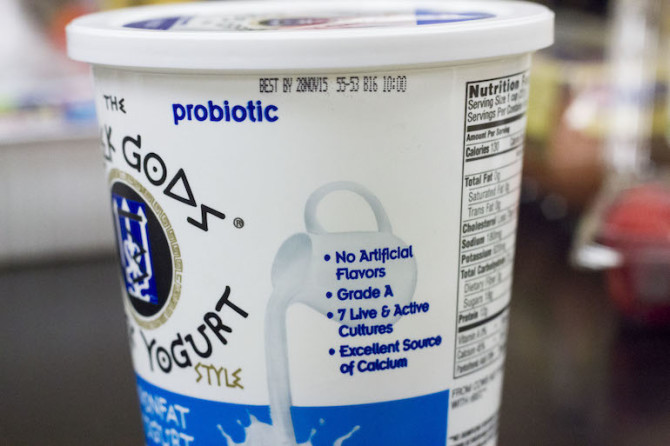
Photo by Natsuko Mazany
If I see something ‘expired’ in my fridge, I usually err on the side of caution– I would rather lose out on a couple bucks by throwing something away than risk a couple days of food poisoning. If you’re cautious like me, getting more comfortable dealing with questionable food will help you realize what you could be saving in your own home. Even mold, most professional chefs say, shouldn’t really turn you off from eating something otherwise totally decent.
11. You Can Take Down the Evil Forces of Capitalism

Photo courtesy of flickr.com
In all seriousness, a lot of people choose to dumpster dive because they want to make a political statement against consumerism, big business, and corporate culture. While this may seem pretty severe, it’s the kind of political statement that can really make a difference these days.


